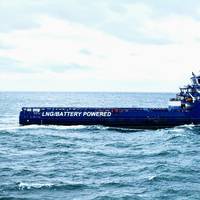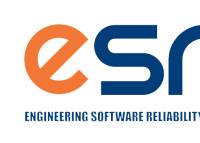Harvey Gulf Converts Fifth Vessel for 'Tri-Fuel' Operations

U.S.-based offshore vessel owner Harvey Gulf announced on Thursday it has converted its fifth offshore supply vessel for tri-fueled operations.Harvey Gulf's feet of carbon-neutral tri-fuel vessels operates on battery power backed by renewable liquefied natural gas (LNG) and diesel.Harvey Gulf said it also completed a sixth vessel with battery power, creating the world’s largest fleet of tri- and dual-fueled oil and gas service vessels and the only ones in the U.S.Harvey Gulf CEO…
EPA Tier 4: Difficult and Contentious, 12 Years and Counting

When it comes to complying with EPA’s Tier 4 emissions regulations, there’s no shortage of creativity emerging from America’s maritime engineering firms. Companies such as Hug Engineering are offering flexible, customized aftertreatment-based control systems that can assemble almost in modular like fashion. Other companies, such as ABB Group, offer battery-hybrid power sources to complement combustion power and avoid threshold diesel emissions. Engine manufacturers, such as Cummins…
Glycerin Powers into the Propulsion Picture
Maine Maritime Academy Receives a $1.4 Million U.S. DOT Research Grant to Develop a Marine Engine Testing and Emissions Laboratory. The Marine Engine Testing and Emissions Laboratory (METEL) at Maine Maritime Academy (MMA) is working on several initiatives to implement viable emissions reduction technologies for the marine industry. Funded by a $2.8 million grant from the U.S. Department of Transportation, the METEL laboratory was developed to address environmental sustainability needs in transportation. Working with a Maine startup company, Sea Change Group LLC (SCG), the METEL team is helping to develop and implement a fuel that combines glycerin with diesel fuel to lower both operating cost and emissions for marine diesel engines.
ESRG Offers Cloud-based Vessel Monitoring
ESRG introduced the industrial internet to the marine sector with cloud-based total vessel monitoring and analytics. ESRG’s OstiaEdge platform as a service (PaaS), combined with cloud-based data-centers, enable ship managers and owners to have visibility into the performance and health of shipboard equipment from anywhere, including mobile devices. Data is automatically collected, validated and analyzed onboard the vessel and then automatically synched with remote data centers which provide the data, along with automated analytics, in the cloud. Owners, managers and operators can log in via any internet connected device, anywhere, and use the online automated analytics to understand how the vessel is operating and use that information to make better operations and maintenance decisions.
ESRG Offers Cloud Based Total Vessel Monitoring to Marine Industry

ESRG introduces the industrial internet to the marine sector with cloud-based total vessel monitoring and analytics. ESRG’s OstiaEdge platform as a service (PaaS), combined with cloud-based data-centers, enable ship managers and owners to have visibility into the performance and health of shipboard equipment from anywhere, including mobile devices. Data is automatically collected, validated and analyzed onboard the vessel and then automatically synched with remote data centers which provide the data, along with automated analytics, in the cloud.





